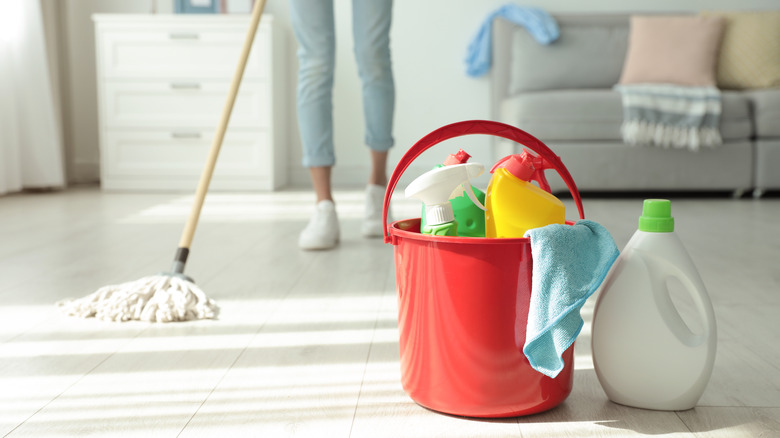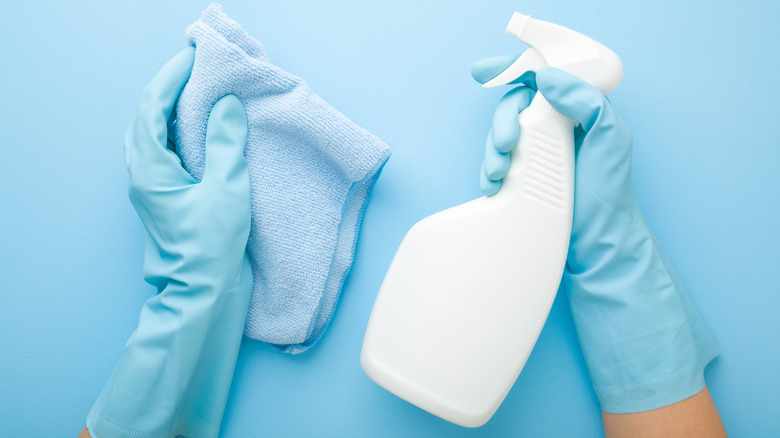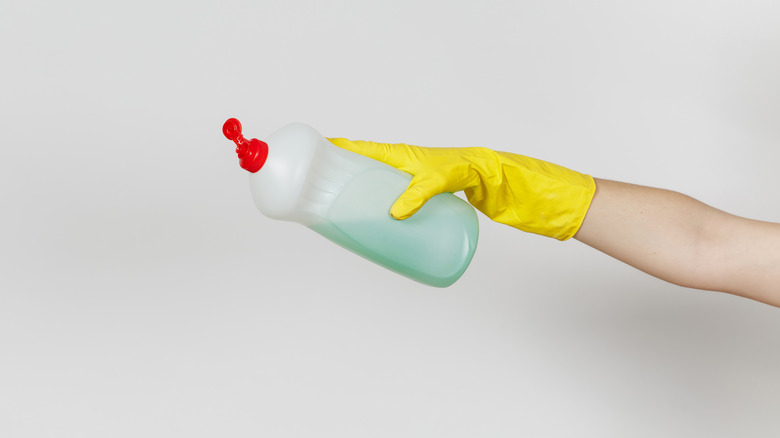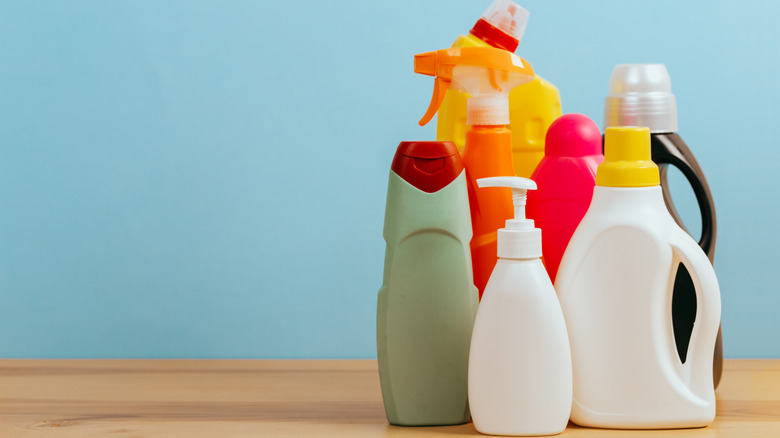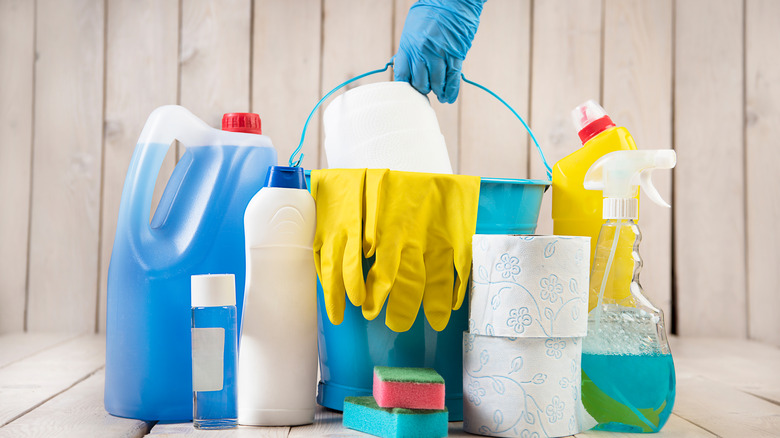The Right Way To Dispose Of Cleaning Products
Cleaning products are essential in any household to keep the home clean and tidy. Besides doing their job of cleaning, they leave your home with a refreshing smell. Of all the products in the house, you would definitely imagine cleaning products cannot be disposed of.
However, sometimes you just want to get rid of them, for whatever reasons. It might be to discard empty packages or unused products or simply to do away with the old unwanted bottles and get yourself brand new ones. The first big question that will certainly ring your mind is how exactly you will dispose of them in the right way to declutter your storage area.
Unlike most products found in the house with toxic chemicals, such as used motor oil and nail polish, cleaning products are usually easy to dispose of, though not all of them, Sweeping Dimensions notes. Below are basic guidelines to help you get rid of the cleaning mess the best way possible.
Read the label
Have you thought of the possibility that you might have the disposal instructions right before you? Manufacturers typically provide useful information about their products and how to discard them. The same goes for cleaning products companies. Sweeping Dimensions explains that you can check out the item's label for directives on how to dispose of or use it.
While you can recycle some cleaning containers or pour the contents down the drain, others won't do. If you read through it closely, you will get useful information that will help you do the task safely. For example, while some cleaning products like laundry detergents are water-soluble but other cleaners will pollute the water supplies. On the other hand, you can discard some cleaning products like wipes in the trash cans.
However, if the information is not clear enough for you, visit the manufacturer's website or contact them for guidance. The guiding principles will also tell you if the cleaning product is hazardous and how to best dispose of its waste. Another option is to check with the local waste disposal facilities for help. Since some cleaning supplies are classified as dangerous, it is crucial to read the labels and follow the instructions. This will help you avoid risking your health or destroying the environment.
Pour them down the drain
If you thought that cleaning products could eliminate the bacteria in the septic tank systems or destroy them, just know that is not the case. Septic tanks can hold any type of waste product and remain intact. You can pour soluble cleaning materials down the drain, but not all of them. Always consider how you use the product.
According to Good Housekeeping, any cleaning solutions that are soluble in water can be safely washed down the drain with the water running. This is not to say that you can mix all the water-soluble cleaners in one container to dispose of them. Remember the vital rule that different individual cleaners shouldn't be mixed when used or poured down the drain. Again, the label will guide you in understanding which products you can dispose of this way.
Naturally, you can get rid of detergents, fabric softeners, toilet cleaners, and liquid disinfectants by mixing them with water and pouring them down the drain. For products in powder form, you risk blocking your drain if you don't do it under running water and slowly. You can also use warm running water for easier breakdown. For the likes of solid products like bar soaps and cleaning wipes, you can throw them with your trash. To make your work easier going forward, go for more concentrated solutions or products that can be refilled to help you in cleaning waste management.
Recycle empty containers
Check for your local recycling programs for details on how to recycle the waste or if they accept empty cleaning bottles. According to Earth 911, you can safely throw empty household containers in your recycle bin since most are made of plastic. In addition, you can recycle cardboard boxes that come with cleaners alongside other paper products. For the aerosol cans and glass containers, take them to the local recycling management. These centers will help you eliminate hazardous items that might cause harm, even if they are not empty.
It is good to use the product entirely or give it to someone rather than throwing it away. This is the best way of dealing with cleaning solutions because, by doing so, you can actualize two avenues of disposal. Using up the product will help avoid the clutter of bottles in your house, which might prove to be a handful when recycling. Remember to go for easy-to-recycle packages when buying cleaning products.
Take extra precautions
Don't be misled that all cleaning products can be flushed down the drain or handled without care. Some need special handling. In most cases, the manufacturer is usually the answer to your question. If not, again, the local waste disposal company in your area can help. As Sweeping Dimensions points out, not handling some household chemicals with caution can cause harm to you and those around you.
Therefore, the best precautions to take are checking out the label for instructions, putting on gloves when handling the product, keeping combustible aerosol cans at a safer distance from heat sources, and maintaining proper ventilation when disposing of them. Even when pouring the supply down the drain, you still need to follow some safety precautions. For example, mixing different chemicals together could also cause harm, so you need to wash off the drain well in between pouring down the waste cleaners.
